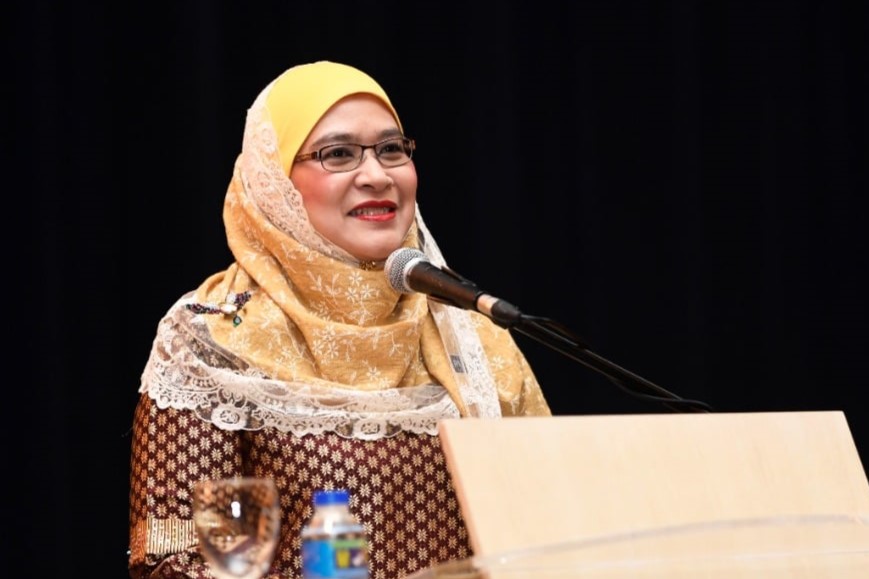
KUALA LUMPUR – The Home Ministry, one of the most powerful ministries for its wide-ranging authority, has had a mixed bag of achievements and controversies this year.
Under minister Datuk Seri Saifuddin Nasution Ismail, who lost his bid for a parliamentary seat in GE15 and was appointed senator, the ministry has received both praise and brickbats for key actions taken this year.
Among them are:
Still unfulfilled promise of citizenship amendments
Saifuddin and Minister in the Prime Minister’s Department (Law and Institutional Reform) Datuk Seri Azalina Othman Said jointly announced in July that the cabinet had agreed to proposed amendment to the federal constitution that would confer citizenship of children born abroad to Malaysian mothers married to foreigners.
The proposed amendment aims to replace the word “whose father” in Part I and Part II of the Second Schedule with the words “at least one of the parents” to enable Malaysian mothers to receive their just rights according to the federal constitution.
However, the amendment is yet to be tabled in the Dewan Rakyat.
The ministry has also come under fire for other amendments inserted in the draft bill which will remove provisions that protect people from becoming stateless, and make it harder for them to be given citizenship rights.

First female Customs DG
Datuk Anis Rizana Mohd Zainudin began duties as the Customs Department’s new director-general on September 25, becoming the first woman in the post. She will serve a two-year tenure.
Recently, she stood firm in the face of criticism when she implemented forced transfers of customs staff, much to the unhappiness of many of them.
The Malaysia Customs Officers Association said the transfers had been executed without consideration of officers’ welfare, but Anis maintained that the transfers were in line with department policies to mandatorily transfer officers who have served three to five years in one location.
While justifying the transfers as necessary for gaining experience and exposures, she also made specific mention of upholding good governance initiatives as part of anti-corruption efforts, especially for civil servants who hold “sensitive” positions.

Visa Liberalisation Plan (VLP) and Malaysia Digital Arrival Card (MDAC)
The ministry has also moved to ensure smoother entry into Malaysia for travellers while not compromising border security.
Foreigners entering Malaysia have to fill the MDAC, a digital arrival form, three days before their entry.
Those exempted are Singaporeans, holders of Brunei common identification certificates and Thai border passes.
Under the VLP, since December 1, visitors from China and India are allowed a 30-day visa-free entry, a move that will also boost the local tourism industry.
Long-term social visit passes will be given to international students from over 20 low-risk and high-income countries.
Social visit passes will also be standardised at a minimum of 30 days.
Body-cams for policemen
The ministry is currently procurement body-cams for officers across 157 district police headquarters nationwide.
Saifuddin has announced that this will begin in the first quarter of 2025, a much anticipated plan that human rights groups hope will improve police behaviour when carrying out enforcement duties.
Swatch Pride collection ban
The ministry came under fire for raiding 11 Swatch boutiques in malls nationwide and confiscating 172 rainbow-coloured and Pride-themed watches in May.
Almost three months after the raid and seizures, only then did the ministry gazette the prohibition against the publication and description of the Swatch Pride watch collection, including their boxes, wrappers, accessories, and any other material, on August 10.
It announced that these products are banned under the Printing Presses and Publications Act (PPPA) 1984 on grounds of being “harmful to morality”.
Using Swatch products containing elements associated with the LGBTQ+ movement could result in offenders facing up to three years in jail, a maximum fine of RM20,000, or both.
This triggered a major public outcry, which claimed that the ministry’s action was clipping freedom of speech, expression, and ownership, not to mention the backdated manner of seizures before the gazettement of the ban.

Raiding bookstores, confiscating books
On August 18, the ministry raided Toko Buku Rakyat, a bookstore at Wisma Central owned by local author and educator Benz Ali.
Officials confiscated two books: “Marx: Sang Pendidik Revolusioner,” a Malay translation of “Karl Marx: The Revolutionary as Educator” by Robin Small, and a copy of Benz Ali’s poetry collection called “Koleksi Puisi Masturbasi” (Collection of Masturbatory Poems).
The ministry justified the seizures under the PPPA 1984.
Another book that was banned by the government is the ‘When I Was a Kid 3’ graphic novel written by Cheeming Boey, following protests from an Indonesian non-governmental organisation over the book’s depiction of allegedly unfair criticism against an Indonesian domestic worker employed in Malaysia.
Mentega Terbang film banned
On August 21, the Home Ministry gazetted a ban on the screening of local indie film ‘Mentega Terbang,’ which was criticised by some segments of the public for scenes that allegedly went against Islamic teachings and beliefs.
The ban was made through the Government Gazette P.U (A) 2662 Film Censorship Act 2002 of the Film Censorship (Prohibition) Order 2023, dated August 21, and signed by Saifuddin.

Film director and producer Mohd Khairi Anwar Jailani and Tan Meng Kheng are fighting the prohibition by taking the government to court in a judicial review.
The duo named the government and the home minister as defendants in their suit, claiming that the gazettement on the film screening prohibition is unconstitutional. – December 31, 2023



